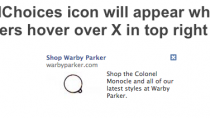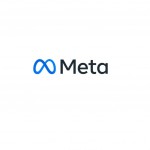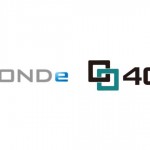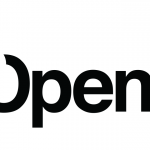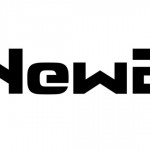Facebook,Microsoftが語るAtlasの買収について(英文)
Over the past few months, reports that Facebook would acquire the Atlas Solutions ad server from Microsoft has fueled both speculation that the social network was prepping an external ad network and questions about Microsoft’s commitment to advertising technology. The companies finally announced the deal on Thursday and Facebook’s Brian Boland, director of product marketing, and Dave O’Hara, Microsoft’s CFO of Online Services division, explained their intentions.
Brian, why is Facebook acquiring Atlas? Very straightforward. We are acquiring Atlas because we think measurement is critically important. In our work with Nielsen [Online Campaign Ratings] and Datalogix, we’ve seen how valuable it is for advertisers to have a deeper understanding of the ROI in their campaign and moving from just looking at the last click that happened to looking at how multiple exposures impact the success and performance of their campaign. It is not about building or launching or creating an ad network.
Dave, why the decision to sell Atlas? Not sure how much it has anything to do last year’s $6.2 billion aQuantive write-off. You’ve seen our business evolve over the years and our vision for our role in the online industry evolve. We’ve increased the breadth of our online assets in terms of advertising capabilities, and we’ve grown from MSN and Windows Live to adding Xbox and Skype and new opportunities with Windows 8. We just made the decision that we want to keep focus on our existing business and building out the online piece as a publisher. In talking with Facebook, there is clearly a desire in their vision for where they wanted to go with the Atlas assets. And that’s why we felt it was important to 1) do the deal and 2) make sure we have a solid commercial relationship in place with Facebook.
What is that commercial relationship? O’Hara: We’re not going to go into the details other than to say it is just… We’re not going to go into the details. It’s just one more piece of a deepening partnership with Facebook over the years.
But there is a deepening as a result of this acquisition? There’s obviously money being exchanged, but it sounds like there are other pieces to the terms. O’Hara: The financial piece was just one component of the transaction for us. It was much more about a deep strategic partnership that, among other things, continuing for us to be an Atlas customer and benefit from all the great work that Facebook’s going to do.
What was the financial piece of this deal? O’Hara: We’re not disclosing that. Nice try.
Brian, people have criticized Atlas’s technology as being subpar and even outdated. You acknowledged in your blog post announcing the acquisition that there is work to be done on the technology. What exactly are you guys planning to do? We’re still in the period between signing and close where we’re learning more and more about the business. We’ve heard loud and clear that there’s a handful of different things we can do to improve advertisers’ experience on the core system as well innovating into new areas like measurement on mobile. We’re not ready yet to walk through a road map or make commitments. We’ll be spending the next little bit learning more from advertisers. And post-close as we can get to know the team, we’ll have a really good sense from those experts on where the Facebook level of investment could really help the product improve.
What specifically does Atlas bring to Facebook that you guys aren’t currently capable of? Boland: First Atlas has a number of experts who have worked in this space for years. So there’s the people expertise that we are ecstatic about. The second component is that Atlas has built a system that enables advertisers to understand their ROI across publishers and to put that into context. The work that we have done by and large has been understanding the ROI of a campaign inside of Facebook, but doesn’t enable advertisers to put that value in the context with their other media buys. Atlas does a great job of helping advertisers track their information and put that into context.
It sounds like you guys have a good idea of what you want Atlas to bring to Facebook, but with all the work to be done, why the decision to acquire opposed to build out your own type of Atlas technology internally? Boland: When we look at Atlas, it is a full acquisition where we are acquiring the technology, the people, the expertise and the client relationships. So this is a great accelerator for our aspirations around measurement.
As big as Facebook’s ads business is, there’s a perception that it’s a fairly lean team behind it. How do you see the talent you’re picking up with Atlas will work with the existing team, even though it sounds like the Atlas employees will remain in Seattle? Boland: We’re going to continue to headquarters the Atlas product suite up in Seattle. We’ve actually built out a great office up here with engineering talent, and there’s been a lot of work already done on ads out of Seattle. We have a fairly large ads team up here. So we intend to integrate the Atlas team into that team and bring some of the methodologies of how we develop and build things at Facebook into that core team.
Atlas is one of a number of ad servers you could have picked up. Did you look at others and what led you to choose Atlas? Boland: There were a number of things we really liked about Atlas. We were impressed by the team and the people involved. In talking with clients, they are excited about what increased investment will mean for the future of Atlas. It seemed like a really good fit, so we felt good about it.
You said no plans for an external ad network, but it seems like Atlas is still a foundational piece for some kind of ad tech stack, however you envision it. Is that the idea? Boland: There’s a couple things to think about. One, it’s easy to conflate the ad serving with ad network. We actually do serve a lot of ads today and have our own ad server. Measurement is important in anything you do in ad technology and adding anything in ad technology, whether we expand it beyond what it is today or just focus on it being an excellent measurement suite. It’s important no matter what you do. Our focus really is on really building best-in-class measurement. That’s something that we believe advertisers are hungry for and that we can help a lot with.
When are you expecting this deal to close and once closed, for any necessary technical integrations to be completed? O’Hara: It’s subject to the standard governmental approvals. We’ll go through that process. We would expect that it will take the usual length of time to get through that, so measured at a few months hopefully. Boland: From a technical standpoint, as we get post-close, working closely with the team to understand what the different technical investments are. There are certain things we can do from a Facebook-only perspective to understand the space better in the meantime, but as we towards close, to operate separately and we’ll start to integrate deeper.
Does this lay any groundwork for potential future acquisitions or types of features or capabilities to build internally? Boland: We meet with lots of companies all the time to understand how we can work closer together and how we can better enable and build the ecosystems. This doesn’t really enable plans one way or another for any different or other future acquisitions. What this does mean is that we do remain committed to building out our advertising business and really helping advertisers be more successful with all their digital advertising buying. That’s something that we are excited about.
from:
http://www.adweek.com/news/technology/facebook-microsoft-execs-discuss-atlas-deal-147623





